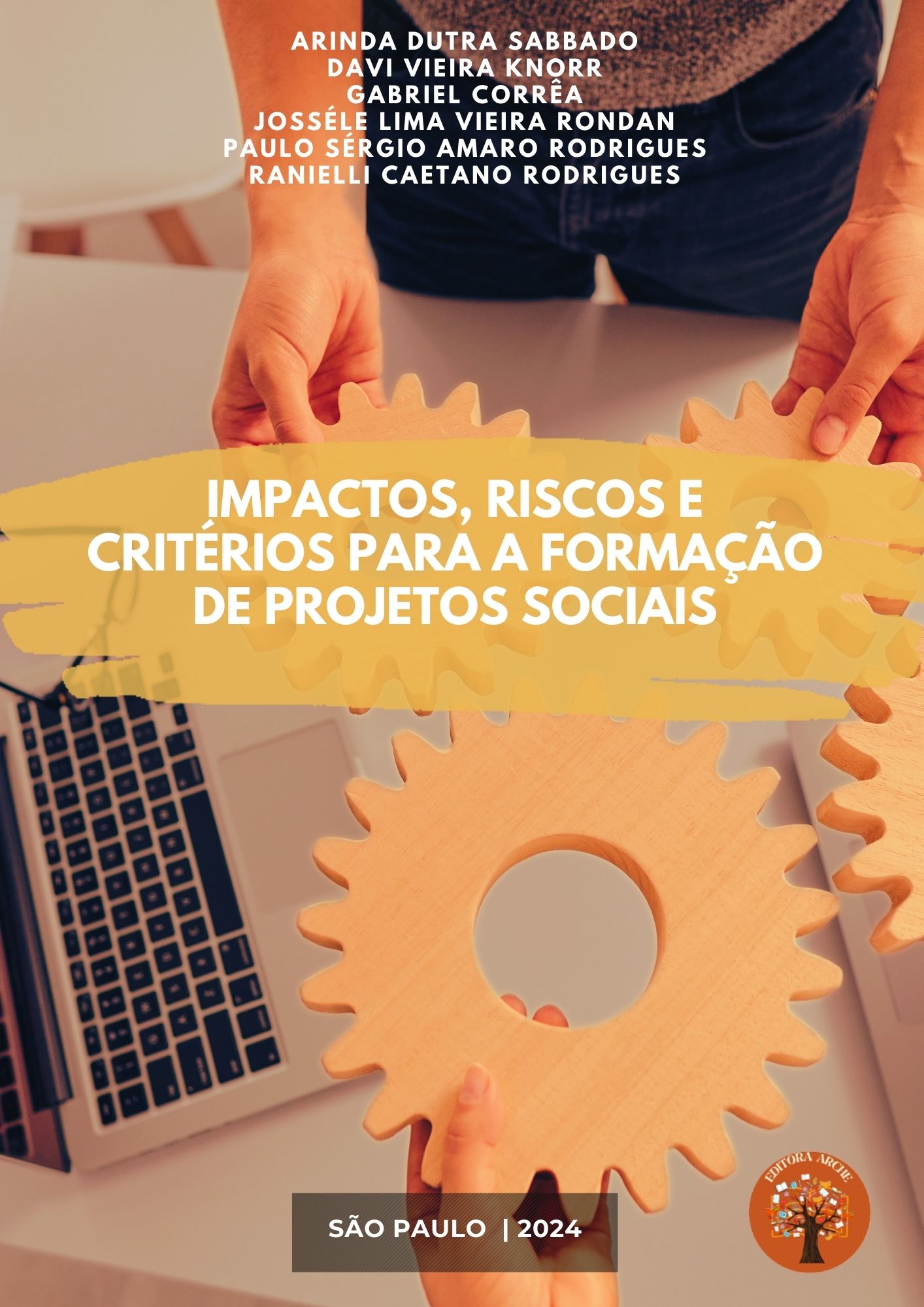IMPACTS, RISKS AND CRITERIA FOR THE FORMATION OF SOCIAL PROJECTS
Keywords:
Project. Social. Group. Consciousness. Future.Abstract
In this work, we will explore the universe of social projects, highlighting their importance, distinctive characteristics and the essential criteria for their effective formation and management. Social projects play a fundamental role in the transformation and development of communities, especially with regard to the empowerment of young people and marginalized groups.
Initially, the work comprehensively addresses the process of setting up social projects, from identifying the needs of the target community to implementing and evaluating the results achieved. Aspects such as strategic planning, defining goals and objectives, mobilizing resources and articulating with partners will be discussed.
The book then highlights the crucial role of social projects in the integral development of young people, providing them with opportunities for learning, personal growth and civic engagement. We will explore how these projects can contribute to building socio-emotional skills, broadening horizons and promoting social inclusion.
The e-book goes on to analyze the key characteristics of social projects, including their participatory nature, focus on collective well-being, holistic approach and emphasis on long-term sustainability. The importance of collectivity, empathy and community empowerment in the design and execution of these projects will be highlighted.
Next, the authors explored the fundamental distinctions between social and business projects, highlighting their motivations, objectives and forms of operation. While social projects primarily aim for social impact and community well-being, business projects generally seek financial returns and commercial results.
The focal point of this book was to focus on a balanced analysis of the successful points, potentialities and items to be improved in social projects, highlighting their ability to promote positive changes and face challenges such as dependence on external financing, bureaucracy and difficulty in measuring of impact.
In the meantime, the research presented effective strategies for managing risks in the management of social projects, including proactively identifying potential threats, implementing preventive measures, and developing contingency plans. The importance of flexibility and adapting to changing circumstances will be emphasized.
Finally, in careful consideration, the digital book presented the positive and transformative impacts generated by social projects in various spheres, such as education, health, economic empowerment, environment and social cohesion. An overview of the tangible and intangible results achieved through these initiatives will be presented.
In the end, the main conclusions and insights presented throughout the book were highlighted, emphasizing the relevance of social projects as instruments of change and social progress. We will also highlight areas for future research and improvements in the area of training and management of social projects.
We wish you all a great read,
The authors
Downloads

Downloads
Published
How to Cite
License
Atribuição CC BY
